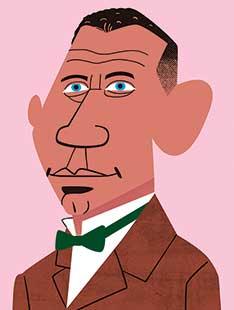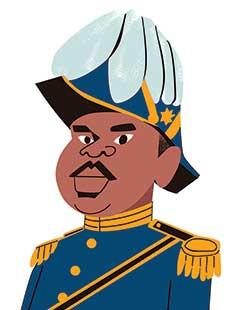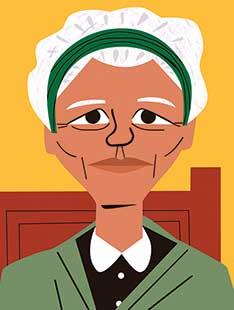
Growing up in Guyana under a dictator, Desmond Jagmohan often saw people present themselves one way in public, then share their true political views in private. That experience has shaped his re-evaluation of several important 19th-century black figures, especially those who lived in the American South. Many historians have viewed those figures as passive, but, Jagmohan says, “those who lived in constant terror of a lynch mob couldn’t behave in confrontational ways.” His research reveals “well-crafted and cunning masks used to conceal radical efforts to chip away at the enormous edifice that was white supremacy.” Jagmohan, an assistant professor of politics, moved to the United States at 16 and joined the Army after high school. He enrolled in college while serving in the reserves and eventually specialized in studying political thought relating to race and injustice.
Jagmohan’s Work: A Sampling

BEYOND COMPLIANCE In 1881, Booker T. Washington, a former slave, became head of a school for African Americans now known as Tuskegee University. He publicly advocated that blacks study a trade and forgo efforts to win civil rights, but, in Jagmohan’s view, Washington spent his life cultivating an image as a compliant black leader to hide his real work. At Tuskegee, “they actually read more Kant than they learned how to make paper presses. But if Washington publicly said as much, even radical abolitionists wouldn’t have funded the university,” Jagmohan says. In a letter in Washington’s archives, a white Tuskegee donor threatened to withdraw his funding after learning that students were studying rhetoric.

GARVEY REDUX Jagmohan is fascinated by black leaders who were popular in their day but were later largely forgotten or dismissed. Marcus Garvey was a nationalist from Jamaica whose views provided inspiration to civil-rights activists. But in recent years he has been seen “as a pompous buffoon,” Jagmohan says. While researching, he found that the ideological origins of Garvey’s nationalism came in part from his reading of Zionist tracts. Viewing Garvey’s work through that lens “helps us trace long-ignored intellectual influences on black nationalism,” Jagmohan says.

PARENTAL BOND(AGE) Harriet Jacobs escaped from slavery and penned an 1861 autobiography, Incidents in the Life of a Slave Girl, which brought attention to the maternal bond between enslaved women and their children. Jagmohan examines how Jacobs perceived the moral agency available to those who were enslaved. “Many slaves accepted that the institution was intractable, and tried to resist in ways other than fleeing or openly rebelling,” Jagmohan says. “Their lives would be lived in slavery, so they tried to pursue an alternative good within the evil system: choosing enslavement so they could be with their children.”











1 Response
Anna Rubin *00
7 Years AgoCaricatures of Black Thinkers
Friends, I was taken aback by the caricatures of Booker T. Washington, Marcus Garvey and Harriet Jacobs in the article "A Fresh Look at Black Thinkers," highlighting the scholarship of Desmond Jagmohan. These representations give a visual message that trivializes these important figures. Jagmohan's thesis is the opposite -- that these thinkers and leaders were active and sophisticated negotiators of what can only be called state-supported terror. How hard would it have been to find archival photographs of these figures or naturalistic drawings?